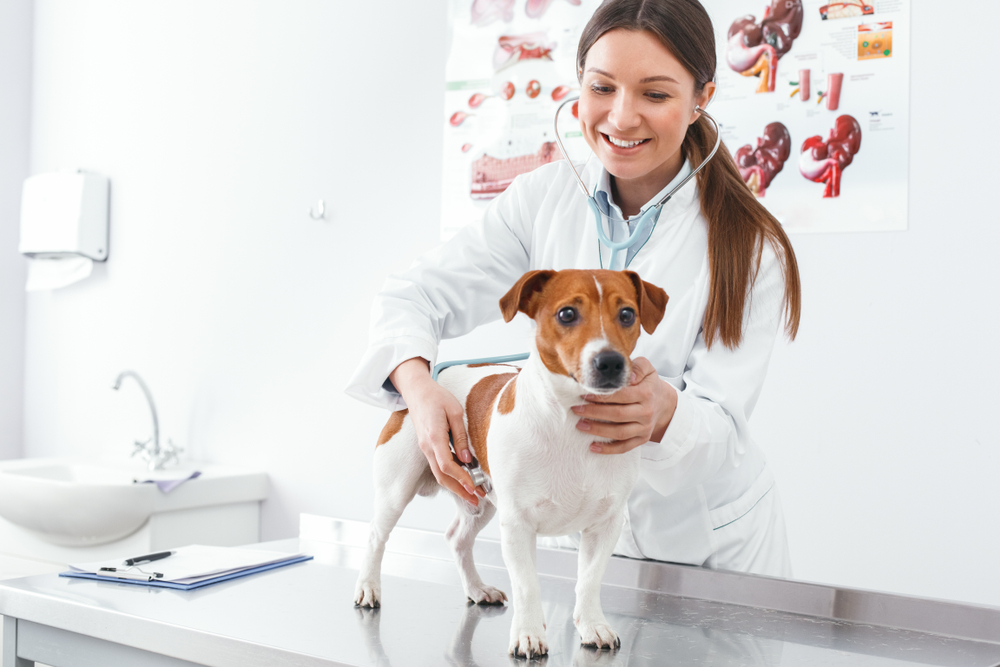When you visit Pioneer Animal Hospital for your pet’s annual or bi-annual exam, you may be surprised that our team recommends wellness screening tests—especially when you’ve reported that your pet’s at-home behavior is normal and that you have no concerns.
Still, after examining your pet, your veterinarian announces that your pet seems in great physical shape, but reiterates their recommendation for screening tests.
You are a bit baffled—why would a seemingly healthy pet need testing to confirm what’s already known? What value is there in a normal test result?
The answer—a normal test result is extremely valuable. Here are five reasons why normal wellness screening tests (e.g., heartworm and tick-borne disease tests, intestinal parasite screenings, blood work, urinalysis) benefit healthy pets.
#1: Normal wellness screening tests create a baseline for your pet
Normal or negative test results may not seem like important information, but combined with your pet’s history, vitals, and exam findings, they create a 360-degree picture of their internal and external health (i.e., their baseline or normal values). For example, your pet’s normal result may include individual quirks, such as a stress-induced blood sugar elevation, white blood cell elevation, or a slightly decreased liver enzyme. When your veterinarian is familiar with your pet’s abnormalities and their individual baseline, they can make informed assessments about future test results—especially when your pet is unwell.
#2: Normal wellness screening tests aid in early disease detection for pets
Each year that your pet receives wellness testing, their medical record becomes a richer and more detailed reference tool for your veterinarian. Each entry helps to ensure early identification of minor changes in organ function or health status that may otherwise be overlooked. For example, a sudden uptick in your pet’s kidney or liver values may prompt further testing or imaging that reveals a hidden disease (e.g., early-stage kidney or liver failure) and leads to an early diagnosis, treatment, and ultimately a better prognosis and quality of life. In this way, normal wellness screening tests can help add precious years to your pet’s life.
#3: Normal wellness screenings can aid in disease management for pets

Early detection of a disease or an unusual change in your pet’s blood work allows your veterinarian to tailor your pet’s future care. Rather than simply responding to your pet’s physical wellness based on a normal physical exam, the veterinarian can track, monitor, investigate, or address subtle internal changes before the disease is well-established or perhaps irreversible.
In the kidney case above, for example, your veterinarian may suggest a therapeutic renal diet to ease the kidneys’ workload and slow deterioration, or they may recommend feeding wet food or setting up a water fountain to increase your pet’s hydration. Depending on your pet’s condition, early intervention may halt, reverse, or slow disease progression and give your pet additional years of health and happiness.
Anticipating your pet’s health needs can inform their care at Pioneer Animal Hospital and at home. Your veterinarian can advise you on the specific signs that could indicate their condition is worsening (e.g., increased urination or thirst, inappetence) and veterinary intervention is required.
#4: Normal wellness screenings ensure an effective care plan
Normal test results not only confirm your pet’s current health but also reinforce their care routine, including veterinary services, nutrition, exercise, parasite preventives, and at-home husbandry tasks. Normal wellness screening results also give you peace of mind that your pet is receiving the best possible care. When you have evidence that your personal decisions and your veterinarian’s recommendations are correct, you can avoid unnecessary, expensive, or potentially harmful changes that could unintentionally alter your pet’s health.
#5: Normal wellness screenings ensure your pet is ready for anything
Life can get hectic. Updating your pet’s wellness screenings at their yearly exam ensures they’re ready for anything, such as:
- Elective anesthetic procedures — Basic blood work ensures your pet is fit for elective procedures, such as a spay, neuter, or dental cleaning under anesthesia. If you anticipate that your pet may need such a procedure in the next six months, updating your pet’s blood work ensures they’ll be ready when you decide to schedule the appointment.
- Boarding, grooming, or daycare — Many pet service businesses require proof of negative parasite testing (e.g., heartworm disease, intestinal parasites). Keeping your pet’s tests up-to-date ensures they will be welcome at a kennel or cattery and that you won’t be left scrambling if you suddenly need to leave town.
- Travel requirements — Pet-friendly resorts, hotels, or various transportation modes may require a negative result for the above issues.
On the surface, normal wellness screening tests may seem unnecessary, and perhaps a waste of money. But, these annual tests allow your veterinarian to provide exceptional and individualized care. Next time the Pioneer Animal Hospital team recommends a wellness screening, remember—this is not a stand-alone test, but an investment in your pet’s long-term health. And, the return is a long-lived, happy pet.
Contact our American Animal Hospital Association (AAHA)-accredited Pioneer Animal Hospital team to schedule your pet’s wellness exam and screening tests.

